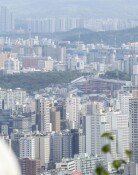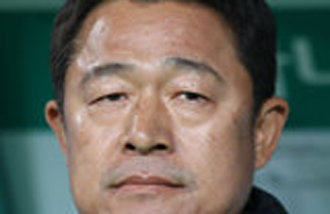Do Perspectives Divide South, U.S.?
It has been reported that the U.S. government and a ruling party representative revealed discussions with South Korea on speculation regarding North Korean counterfeiting and the U.S.-led Weapons of Mass Destruction (WMD) Proliferation Security Initiative (PSI), respectively, even though the South Korean government had kept those discussions secret.
While some point out that the government is excessively cautious when it comes to North Korea, there are concerns that there is a significant gap in perspective between South Korea and the United States.
U.S. Embassy: North Korea Guilty of Illegal Financial Activities-
The U.S. Embassy in Korea revealed on January 24 that Deputy Assistant Secretary Daniel Glaser of the terrorist financing and financial crimes branch of the U.S. Treasury Department met Korean government officials on January 23 and requested that Korea make more of an effort to financially isolate the main culprits of the spread of WMD and their supporting networks.
Through a press release, the U.S. Embassy stated, Deputy Assistant Secretary Glaser explained the United States efforts to warn financial institutions of global financial threats, including North Koreas illegal activities, and requested that South Korea take similar steps.
The U.S. Embassy revealed that Glaser said, Discussions [with the South Korean government] concentrated on international efforts to crack down on money laundering, terrorist group financing and other financial crimes, as well as illegal financial activities led by the North Korean government, stating clearly that the North Korean authorities were the main culprit behind numerous illegal activities.
However, the South Korean government did not disclose the contents of its discussion with the United States on January 23 when it held joint consultations regarding the North, or on January 24 when the U.S. Embassy disclosed the details.
Meanwhile, according to the Swiss press on January 23, the global bank CrediSwiss Group rejected new transactions with North Korea, Iran and Syria. These three nations are classified as rogue states by the U.S..
Based on this, some predict that financial pressure by the international community on North Korea and other nations has begun in earnest.
Government Gave Nod to PSI Cooperation Late Last Year-
In regard to PSI, the government decided to expand PSI cooperation activity targeting North Korea at a National Security Council (NSC) meeting on December 29, 2005.
The PSI is an initiative seeking to intercept ships, vehicles and aircraft illegally transporting WMD components, including nuclear, biochemical weapons, and missiles through inspections and searches on land, at sea and in the air. Over 70 nations are participating in the initiative worldwide, led by the United States.
The government decided to dispatch a delegation to witness WMD interception training and listen to briefings on the results of PSI meetings in addition to the WMD interception training undertaken in Ulchi Focus Lens, a joint Korea-U.S. military training exercise, and officially notified the U.S. government of this on January 10.
However the government withheld the information and belatedly acknowledged this fact after Uri Party Representative Choi Jae-cheon disclosed this fact to OhmyNews, an Internet news portal.
As PSI and financial sanctions are issues North Korea reacts sensitively to, these issues are expected to affect future rounds of six-party talks on North Koreas nuclear issue.
Chae-Hyun Kwon jkmas@donga.com
Headline News
- Iran blames US sanctions for helicopter crash that killed president
- Pres. Yoon vetoes investigation into death of marine
- “Croatia Holds a Business Forum in Seoul…Looking forward to the development of trade relations”
- Samsung names new chief for semiconductor business
- Seoul City plans to expand welfare benefits







